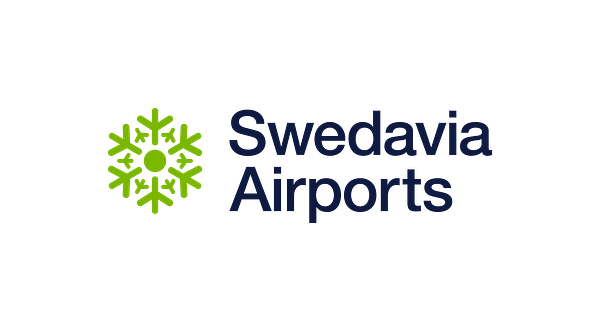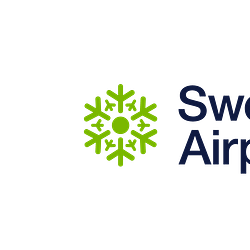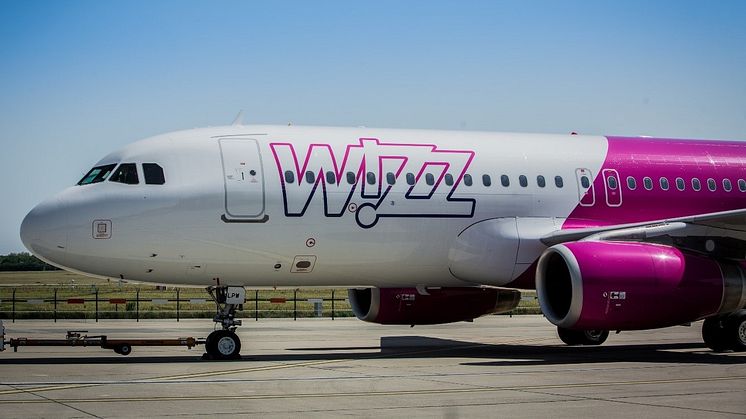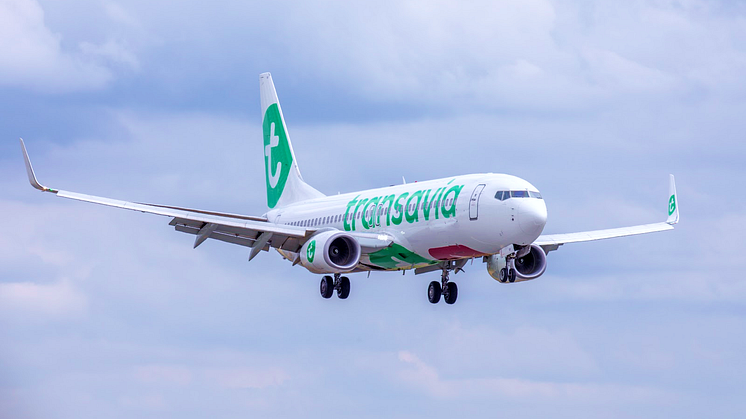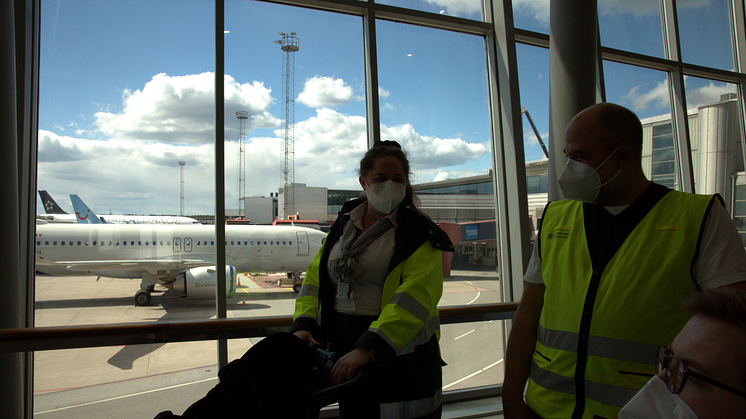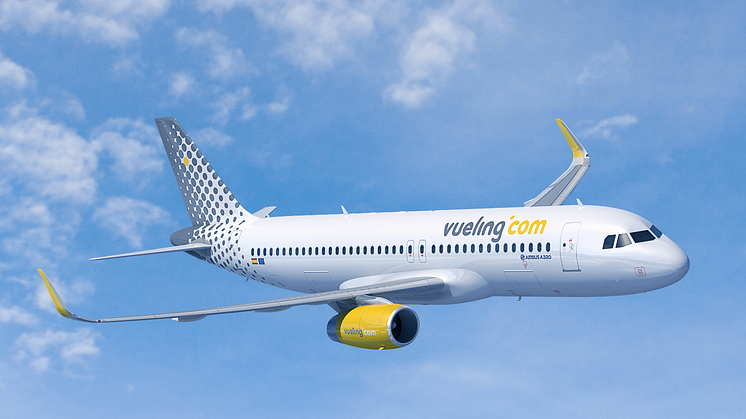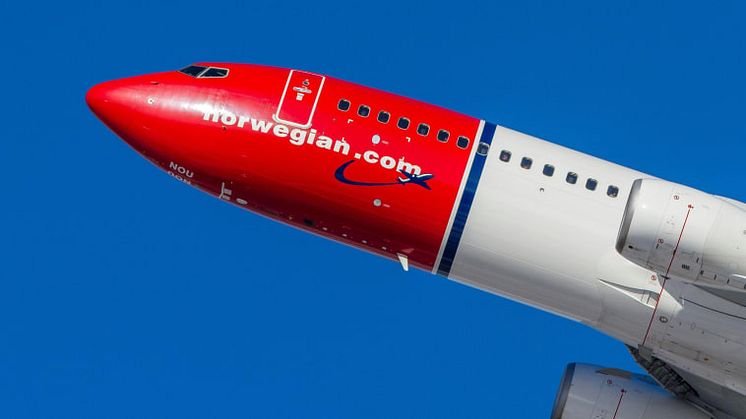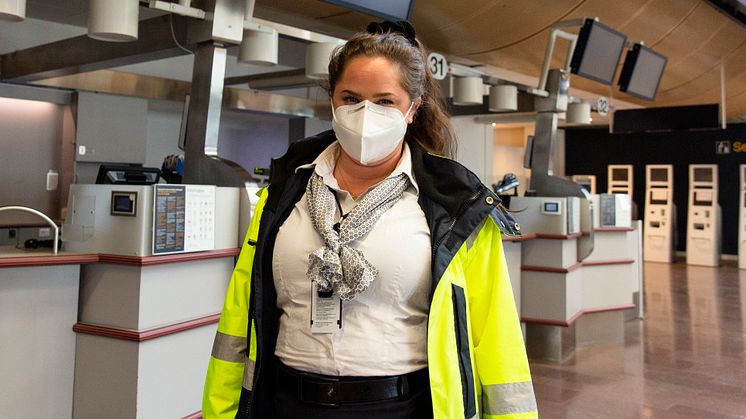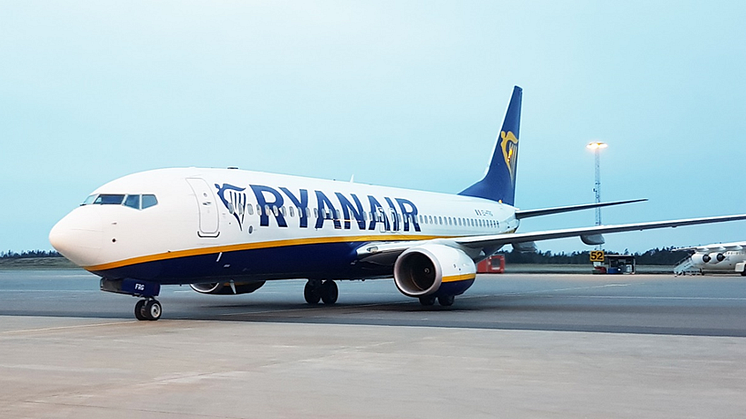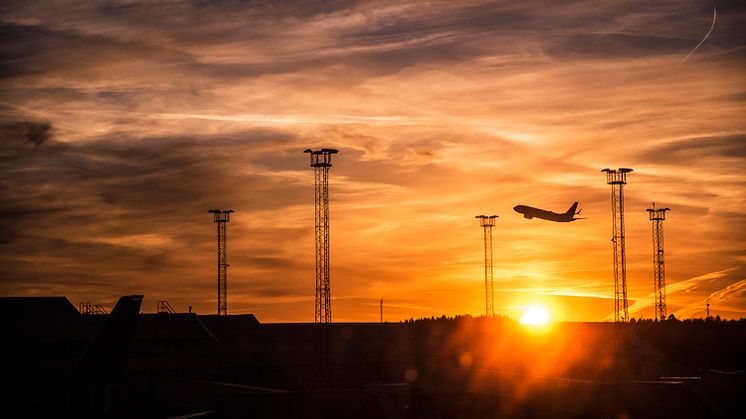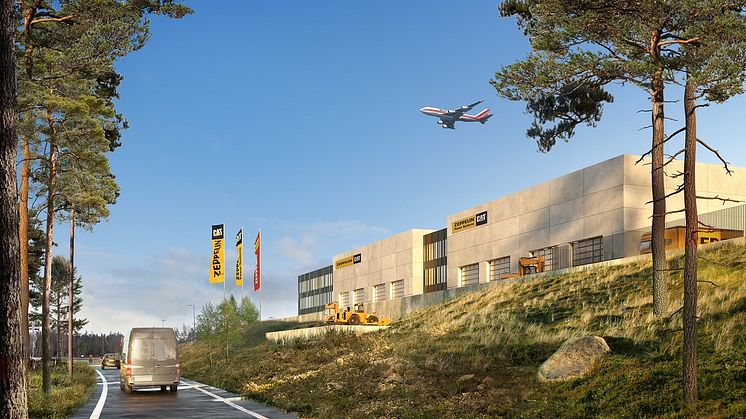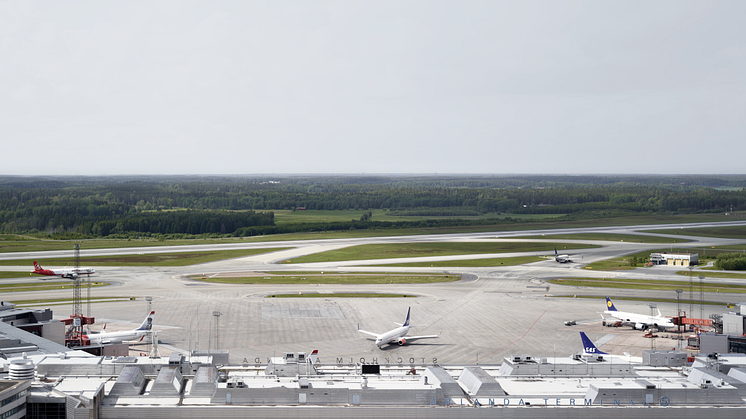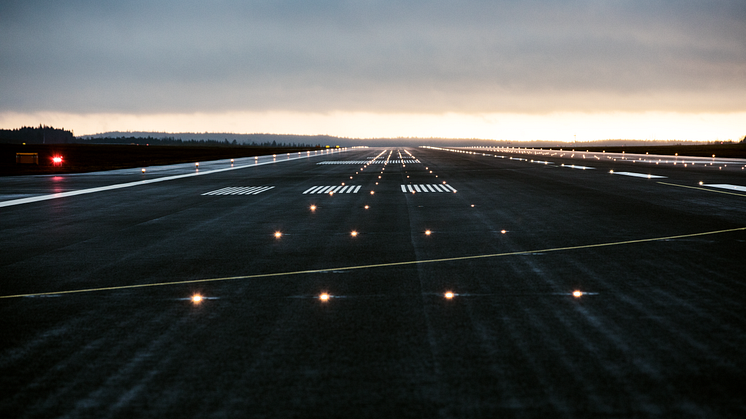
Press release -
Swedavia reaches milestone in its climate work – Swedavia’s own airport operations now fossil-free
Just before the end of last year, Swedavia became one of the first airport operators in the world to have the operations it runs under its own management at its ten airports be fossil-free. The company notes this milestone in its Annual and Sustainability Report 2020. Swedavia is now extending that work to supporting other companies and organisations at its airports in transforming their operations, with a special focus on reducing climate impact of the Swedish aviation industry.
Today Swedavia runs extensive airport operations across Sweden that just a decade ago generated about 8,000 tonnes of fossil carbon dioxide each year. That figure has now been reduced to zero. As a result of this work to more sustainable operations, among the changes made, all of the airports today are powered by and heated and cooled with renewable energy, back-up power units run on renewable fuel, and Swedavia’s fleet of vehicles runs on electricity or renewable fuel.
“Swedavia wants to be a driving force in reducing climate impact. So I am incredibly proud that our own airport operations, some of the first in the world, are now free from fossil carbon dioxide emissions. This is a result of relentless work that has required a sense of purpose, investments, innovation and collaboration with partners to reach a goal that many had thought was not possible,” says Jonas Abrahamsson, Swedavia’s president and CEO.
Over the years, Swedavia has worked systematically to reduce the climate impact of its airport operations and particularly to minimise the emissions of fossil carbon dioxide in its own operations. In 2006, Swedavia became climate-neutral and in 2011 the goal was set to reduce Swedavia’s emissions of fossil carbon dioxide from its own operations to zero by the end of 2020. The first airports to reach this goal were Ronneby Airport in January 2017 followed by Visby Airport and Luleå Airport during 2018.
Switching to renewable heating in buildings and making the company’s fleet of vehicles fossil-free have had the greatest impact. Today Swedavia owns about 800 vehicles, almost 300 of them at Stockholm Arlanda Airport. Nearly half of the fleet now runs on electricity, and other vehicles run on renewable fuels, such as biogas. Between 2015 and 2020 alone, Swedavia invested nearly 650 million Swedish kronor in a renewed, fossil-free vehicle fleet.
For some equipment, no fossil-free alternatives were available, which required creative solutions from employees but also innovation and development in dialogue with suppliers. The areas of development include everything from smaller machine equipment such as electric paint machines to larger snow removal vehicles that run on biogas. The focus has also been on developing more efficient machines to reduce the use of fuel as well as the numbers of machines.
“Swedavia’s airports are part of a larger transport system, and being fossil-free now in our own operations is obviously just one milestone. We are now intensifying the work to support other companies and organisations that operate at the airports to adapt to more sustainable operations and above all to enable aviation’s climate change transition through investments in bio aviation fuel and by preparing our airports for electric aviation. Aviation is absolutely essential in order for our modern society to function, but the transport of the future must be fossil-free, so continued hard work is needed,” says Jonas Abrahamsson.
Swedavia’s strategic goal is for at least five per cent renewable aviation fuel to be used for refuelling at Swedish airports by 2025, and Swedavia actively promotes the use of bio aviation fuel, which reduces emissions of fossil carbon dioxide by up to 85 per cent.
Among other moves, Swedavia purchases bio aviation fuel equivalent to the amount used for the company’s own business travel and invites other companies and organisations to take part each year in a coordinated tender so that they too can buy bio aviation fuel. Swedavia also helps to fund the additional cost for airlines that choose to refuel with bio aviation fuel at Swedavia’s airports.
Swedavia’s complete Annual and Sustainability Report (in Swedish) can be downloaded at www.swedavia.se/om-swedavia/finansiell-information. The report describes Swedavia’s sustainability work and performance during the year as well as its financial position at year-end, and is dominated by the far-reaching effects of the Covid-19 pandemic on Swedavia and the aviation industry. The English version of the Annual and Sustainability Reports will be available on Swedavia’s website in late April.
For further information about Swedavia’s climate change adaptation work:
https://www.swedavia.se/what-swedavia-is-doing/#gref.
The report is a combined Annual and Sustainability Report in accordance with accepted regulations and standards. The Sustainability Report is prepared in accordance with Global Reporting Initiative Standards, Core option.
For further information, please contact Robert Pletzin, Head of Media Relations at Swedavia, or Swedavia’s press office at +46 (0)10-109 01 00 or press@swedavia.se.
Swedavia AB is obliged to publish this information under the Swedish Financial Instruments Trading Act. The information was submitted for publication on March 26, 2021, at 09:00 a.m. CET.
Topics
Categories
The Swedavia Group owns, operates and develops ten airports across Sweden. Our role is to create the access Sweden needs to facilitate travel, business and meetings. Safe, satisfied passengers are the foundation of Swedavia’s business. Swedavia is a world leader in developing airports with the least possible environmental impact. The Group had revenue of about 2.5 billion kronor in 2020 and has nearly 2,600 employees.
